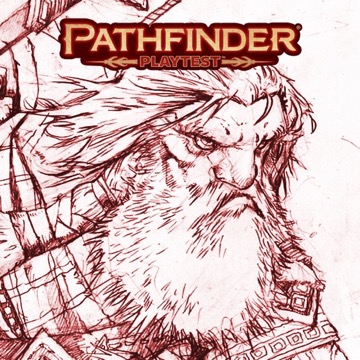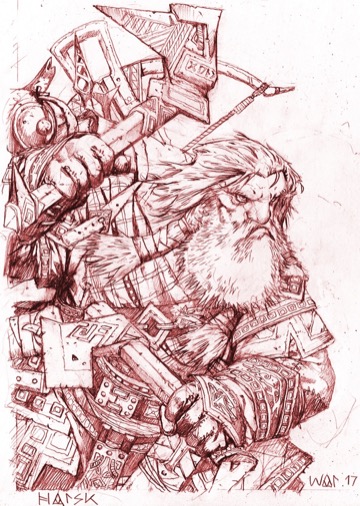With the Pathfinder Playtest, we're looking to level up the entire Pathfinder game. And that means leveling up... leveling up! Gaining new levels and the toys that come with them is a core part of Pathfinder First Edition, and we want to make it more rewarding in the new edition. So how do you level up?
Well, first you're going to need some Experience Points. You can get those XP by fighting monsters, encountering traps, solving puzzles, and accomplishing goals. Once you hit 1,000 XP, you level up! (That's for every level, so whenever you have 500 XP, you'll always know you're halfway to leveling up again! And if you have any extra Experience Points after leveling up, they count toward the next level.)
Once you have enough Experience Points to level up, you'll increase your proficiencies, then get some more Hit Points (8 + Constitution modifier for a cleric, for example), and then get to make the choices for your new level. What choices? Those are all covered on your class's class advancement table. For instance, at 2nd and 3rd levels, the cleric gets the following:
| 2 | Cleric feat, skill feat |
| 3 | 2nd-level spells, general feat, skill increase |
(Wait... what if I multiclass? We'll cover that in a future blog, but let's just say you'll still be referencing only one advancement table.)
One thing we knew we wanted to include in the new edition was a good number of choices for all characters. In first edition, this could be pretty unequal. Even though over time, the game incorporated more ways to customize any type of character, we wanted to build in more robust customization into the structure of every class. That's why every class gets specific class talents (which include spells for spellcasters) at 1st level and every other level thereafter, increases to skills every other level, and feats at every level!
Feats Feats Feats!
How does gaining feats at every level shake out? Every class has special feats just for them, which you gain every other level. When your cleric hits 2nd level and gets that cleric feat, do you want to become a better healer? Learn another of your deity's domains? Turn undead away from you? Your class feats give you these options, so you're not locked into the same path as every other cleric.
On any level when you don't gain a class feat, you gain a skill feat to change the ways you can use skills, a general feat that's useful to any character regardless of class, or an ancestry feat that reflects the training or advantages of your people. Skill feats are part of the general feat category, too, so if you really want to invest in your skills, you can drop 15 feats on improving them!
Many of your feats—especially class feats—give you new actions, activities, and so on that you can use. They have a special format to tell you how they work with your three actions and one reaction. Formatting them this way means that it's easier to tell whether a feat is something you can always do or a special action you can take. In Pathfinder First Edition terms, this would be like the difference between Weapon Focus and Vital Strike.
One of our goals with feats was to make them easier to choose and to use. Most feats require very few prerequisites, so you won't need to worry about picking a feat you really don't want in order to eventually get one you do. Any prerequisites build off your level, your proficiency, and any previous feats the new feat builds onto.
The Best of Your Ability
You'll also amp up several of your ability scores every 5 levels. The process might be familiar to those of you who've been playing Starfinder for the last several months! There are, of course, a few tweaks, and we made all ability boosts work the same way instead of being different at 1st level. Learn it once, use it in perpetuity.
Second Chances
So you get all these choices. Let's say you make a few bad ones. It happens!
Retraining your abilities is now in the game from the get-go, covered by the downtime system. You can spend your downtime to swap out choices you made for other ones. (Though you can't swap out ones that are a core part of your character, like your ancestry, unless you work out a way to do so with your GM.
Some classes give you ways to retrain your choices automatically. For instance, some spells get less useful as you go up in level, so spontaneous spellcasters get to replace some of the spells they know with other ones when they get new spells.
Leveling in the Playtest
The playtest adventure will have you playing characters at various levels, and tells you when to level them up (or tells you to create new characters for certain chapters). Our goal has been to make your options expansive and satisfying, but not overwhelming. We look forward to you telling us which decisions you're making, trading tips with fellow players, and agonizing over two feats when you really want them both.
Logan Bonner
Designer








